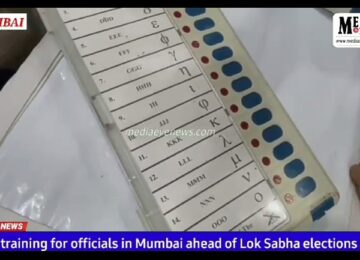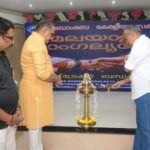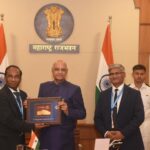Anupama Nair
www.mediaeyenews.com
Prime Minister Modi inaugurated the Amrit Mahotsav or celebration of India’s 75th year of Independence. We will be celebrating this event till 2022. I am going to write a feature on all those great men and women who fought against foreign invasion not just against the British. In the last two articles, I wrote about the great men from Kerala, who fought the British to free their kingdom from foreign rule. Today I am going to write about the great but unknown Velu Nachiyar, from Tamil Nadu, who gave her life to save her kingdom from the British East India Company. She is one of the earliest individuals to rebel against the British East India Company's supremacy in India and she succeeded. Did you know she was the first Indian queen to fight British Imperialism, nearly a century before Rani Lakshmi Bai? She devised the first recorded suicide bombing in history, with her commander-in-chief Kuyli
To understand the story of Velu Nachiyar, I need to take you back many centuries before. India was ruled by the cruel Mughals. It is a credit to the British, how the merchants who came to do trade with India, within 300 years became the masters of the entire land from Khyber to Chittagong and from Kashmir to Comorin (now Kanya Kumari), i.e., the entire Sub-Continent. The English East India Company was formed by merchants of England to trade with Asia and India the “golden bird” in particular and America. It was formed by the Royal Charter on New Year’s Eve on 1600. They landed in the Indian subcontinent on August 24, 1608, in Surat (Gujarat).
The Battle of Plassey (1757) and Battle of Buxar (1764) , smoothened their path to conquer the sub-continent. Robert Clive became the first Governor-General of British India. By spinning a web of deceit, and many laws like Subsidiary Alliance (Lord Wellesley) and Doctrine of Lapse (Lord Dalhousie), they succeeded in ruling the entire sub-continent by 19th century. Jawaharlal Nehru in his book Discovery of India quoted “British rule in India had an unsavory beginning and something of that bitter taste has clung to it ever since”.
She was born in 1730 to Raja Chellamuthu Vijayaragunatha Sethupathy and Rani Sakandimuthal She was also known as ‘Veeramangai’. As she was an only child, the royal couple raised her as they would have raised a male heir. She was trained in horse-riding, archery, and martial arts. She was also well-versed in several languages, — English, French, and Urdu.
The British had just started their conquest of India through the East India Company. The dream of British East India was to capture the “sone ki chidiya”—India and become “the masters of the Subcontinent. For this they gained the support of the Nawab of Arcot (Tamil Nadu), Muhammad Ali Khan who wanted to defeat the French Imperialists and Hyder Ali (father of Tipu Sultan), who was the Sultan of Mysore (Karnataka).
Velu Nachiyar was married to Muthuvadugananthur Udaiyathevar, the prince of Sivagangai (Tamil Nadu), and had a daughter called Vellachi and an adopted daughter Udaiyaal. The royal couple ruled peacefully over the kingdom for nearly two decades, until the King was killed by the British. This War is called as ‘Kalaiyar Koil’ War. After her husband’s death she was forced to flee her kingdom with her daughters and lived in Virupachi in Dindigul, for eight years under the sanctuary of Gopal Nayaker.
During her stay in Dindigul, Velu Nachiyar met Haider Ali, the Sultan of Mysore. She with her knowledge of Urdu managed to impress him with her courage and determination. This led to her garnering support not just from Gopala Nayaker, but also from Haider Ali, who pledged to be her ally in her fight against the British. He even built a temple inside his palace as a sign of their friendship. She was invited by the Sultan to stay at the Dindigul fort where she was respected as queen. Haider Ali also helped her with monthly financial support and much-needed military force.
A great and strong kingdom needs efficient ‘intelligence agents” and her intelligence agents who were excellent in the skills, found out where the British had stored their ammunition. A suicide attack was then planned to destroy all of it. Her army commander the great and brave Kuyili immolated herself in the storage place. Under her instructions her adopted daughter Udaiyaal blew up the British arsenal through another suicide attack. In the memory of Kuyili and Udaiyall, she formed a women’s army.
After her victory over the British, Velu Nachiyar reigned over the kingdom for over a decade. She made her daughter Vellachi heir to the throne and the Marudhu brothers, her friends from the Kalaiyar Koil War, were given administrative positions in the kingdom. She never forgot to express her gratitude to Haider Ali for his immense and timely help, and constructed a mosque and church at Saragani, and also maintained brotherly relations with Tipu Sultan, as she loved him like a brother. The brave queen passed away in 1796 in Sivagangai, her beloved kingdom due to a heart problem.
To honor her contribution to the freedom of India, in 2008, a stamp was released. A ballet performance presented by OVM Dance Academy of Chennai narrated the story of ‘’ veeramangai”. The late J. Jayalalitha, former Chief Minister of Tamil Nadu, inaugurated the Veeramangai Velu Nachiyar Memorial in Sivagangai on 18th July, 2014. It was announced that January 3 every year would be celebrated as the birth anniversary of the fearless queen who shattered all gender roles as early as the 18th century.
What you need to think, is have you heard about this great and brave queen? It enforces my belief that our history curriculum needs to be changed immediately. Instead of greedy and cruel invaders like the Mughals and Khilji, such people and their greatness needed to be taught. Can we let them be buried in the annals of history never to be known in their own country?





























Just like Rani Lakshmibai.
Just like Rani Lakshmibai. But unknown
Nice article. India has such braves. Congrats Anupama and Media.
Well done. Please publish about Veera Pandiya Katta Bomman.
Great article. Never heard of such people. Please publish more such articles
Great article. Never heard of such people. Please publish more such articles
Great article. Never heard of such people. Please publish more such articles
Women power. Brave queens of India.
Just like Rani Laxmibai.
Please publish more articles
Please publish more articles like this. I am proud of this great queen from Tamil Naidu.
Good
Great research done Anupama.
Great research work done.
Veera Mangai indeed.
Beautiful piece of work. Indian queens are known for their bravery and beauty.
We should give such great people our due.
Great place to visit.
Great queen.
Great queens of India.
Great queens of India.
Great women of India. Women of India were never weak.
Great women of India. Women of India were never weak.
Great queens of India.
Great queens of India.
Great queens of India.
Anupama has great eye for research.
Anupama has great eye for research.
Anupama has great eye for research.
Veera Mangai Indeed
Veera Mangai Indeed
Great queen of India
Great queens of India.
Great queens of India.
Great article.
Great article.
great queens of India
great queens of India
great queens of India
Wow great article.
Wow great article.
Great queen of India.
Great queen of India.
There are many people who fought for our Independence, but credit given to only two.